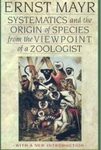![Nature Lost? Nature Lost?]()
Click to have a closer look
About this book
Contents
Customer reviews
Related titles
About this book
Unlike their British and American counterparts, 19th-century German theologians paid little attention to natural science, and especially eschewed philosophically popular yet naive versions of natural theology. Frederick Gregory shows that the loss of nature from theological discourse is only one reflection of the larger cultural change that marks the transition of European society from a 19th-century to a 20th-century mentality. In examining this "loss of nature", Gregory refers to a larger shift in epistemological foundations - a shift felt in many fields ranging from art to philosophy to history to, of course, theology. Yet although nature was lost to Germany's "premier" theologians, the author shows it was not lost to the majority of 19th-century laypeople nor to the various theologians who spoke for them. Like their 20th-century counterparts 19th-century creationists insisted on keeping nature at the heart of their systems; liberals welcomed natural knowledge with the conviction that there would be no contradiction if one really understood science or if one really understood religion; and pantheistic naturalists confidently discovered a religious vision in the wonder of the Darwinian universe. Gregory suggests that modern theologians who stand in the shadow of the loss of nature from theology are challenged to devise a way to recapture what others did not abandon. In this study of natural science and religion in 19th-century German-speaking Europe, Gregory examines an important but largely neglected topic that will interest historians of theology, historians of philosophy, cultural and intellectual historians of the German-speaking world, and historians of science.
Contents
Part 1 The historical challenge of religion and science: historiographical approaches to German religion and science; the shape of German Protestant theology in the 19th century. Part 2 Nature retained: the new Hegelian faith of David Friedrich Strauss; Otto Zockler, the Orthodox school, and the problem of creation; Rudolf Schmid and the reconciliation of science and religion. Part 3 Nature lost: Wilhelm Herrmann's encounter with the theology of Albrecht Ritschl; the existential critique of science and theology; epilogue - the future chalenge of relgion and science.
Customer Reviews


































